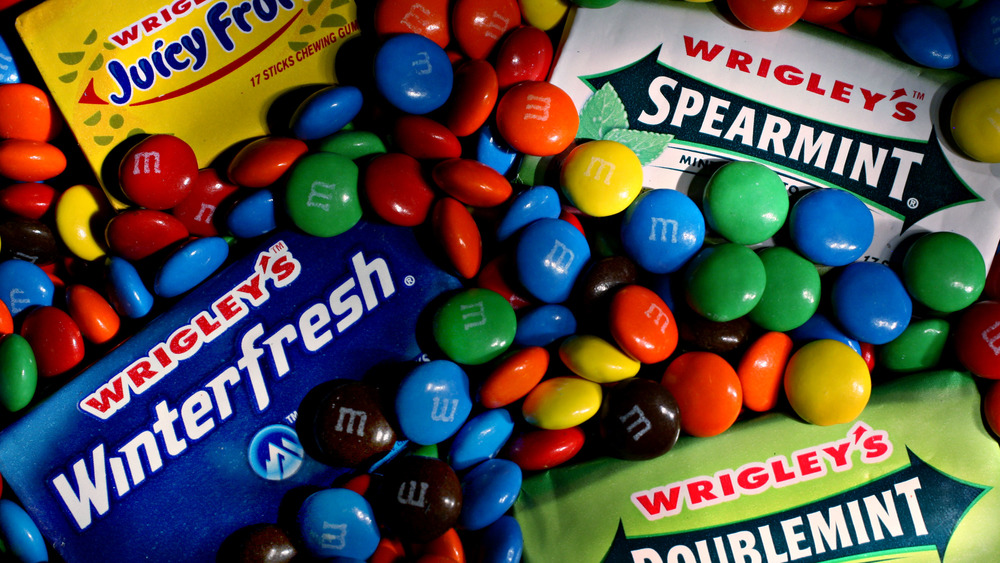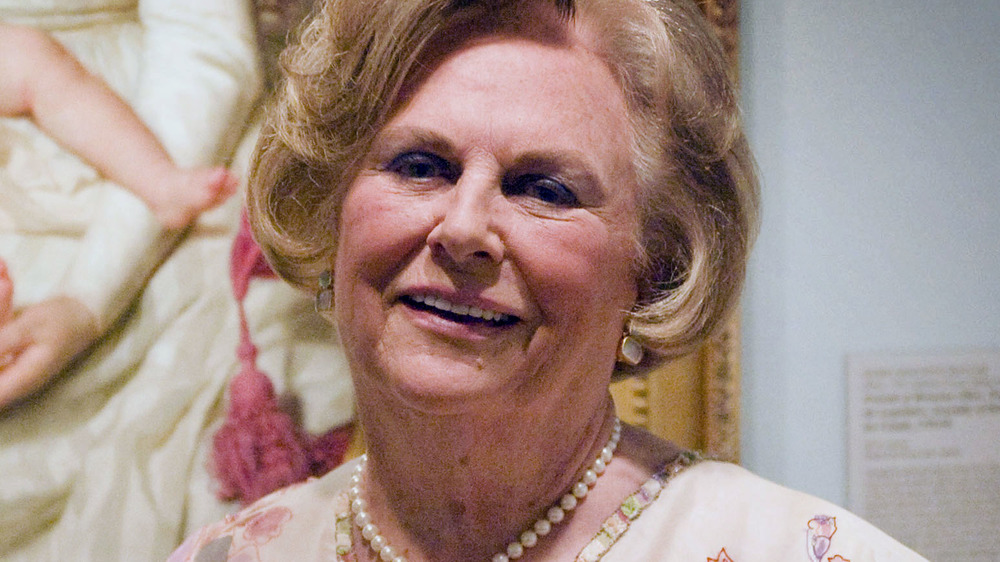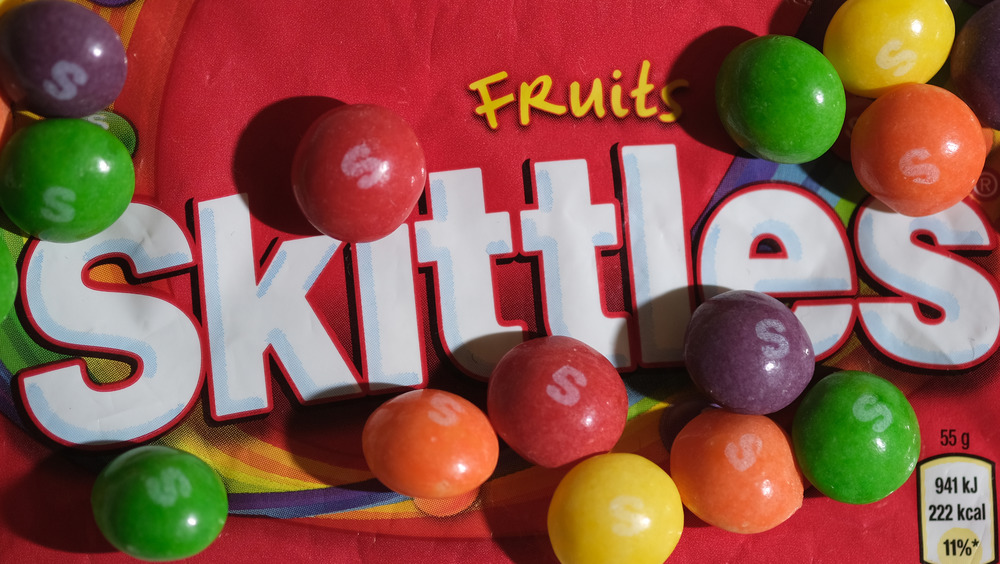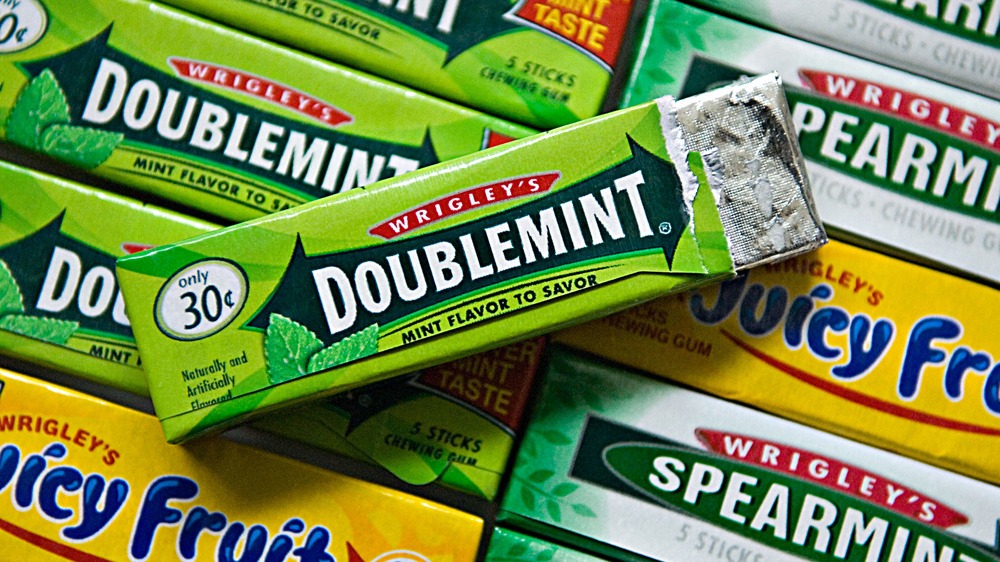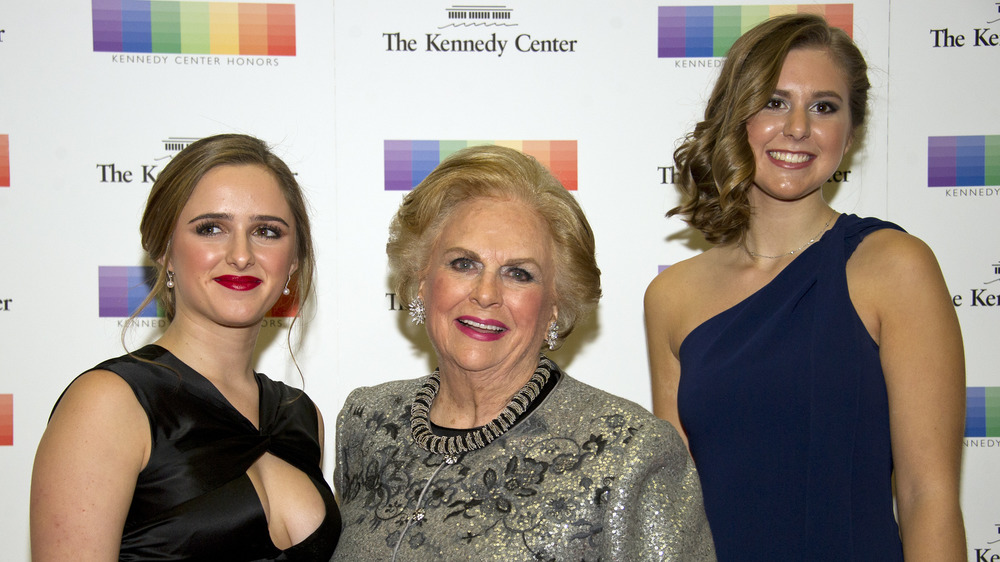The Untold Truth Of Mars Wrigley Confectionery
How much candy can one company make? Turns out, quite a lot! Mars, Inc. the candy and chocolate powerhouse company behind beloved candies like M&M's and Snickers bars, became the worldwide leader in chocolate and confections when it purchased Wrigley in 2008, according to The Guardian.
Wrigley already had a sweet legacy of its own. Delish says the family-run company, founded in 1891 in Chicago by William Wrigley Jr., created popular chewing gums like Juicy Fruit, Doublemint, and Wrigley's Spearmint, and candies like Life Savers.
Chances are you grew up eating one (or many) of the candies, candy bars, and gums created by the expert candy makers at Mars and Wrigley. What are your favorites? Classic M&M's, Hubba Bubba gum, Altoids, or maybe a simple 3 Musketeers Bar? Beyond the addictive sugar rush of their sweets, there's so much more to know about this company. Here's the untold truth of Mars Wrigley Confectionery.
Mars Wrigley is owned by one of the wealthiest families in the U.S.
Forbes' 2020 ranking of "Billion Dollar Dynasties" names the Mars family as the third wealthiest in the country, with a net worth of $94 billion. The family's place on this impressive list is shadowed by only two other dynasties: The Waltons (of Walmart) and the Koch Industries family.
Six members of the Mars family rank on the Forbes list of the 400 richest Americans, including siblings Jacqueline and John Mars, who inherited the candy empire in 1999 after the death of their father, Forrest Mars, Sr. Their brother, Forrest Mars, Jr., also helmed the company until his death in 2016. His four daughters, who according to Business Insider each inherited a share, are the other Mars members on Forbes' list.
The Mars empire has grown beyond just candy bars and gum to include foods like Ben's Original Rice, pet food, and even animal hospitals (via Mars). Their factories and offices are located across six continents.
Mars Wrigley owns a chain of gourmet chocolate stores
You might be surprised to learn that the company behind the production of millions of candy bars every year also owns a string of candy shops — where chocolates are made in small batches. The son of founder Frank C. Mars, Forrest Mars, Sr. was supposed to be enjoying retirement in 1981, but according to Candy Industry, he decided to launch Ethel M. Chocolates instead. He named the company in honor of his mother and opened the first shop in Henderson, Nevada. The business focuses on high-end, quality chocolates.
Ever the savvy businessman, Mars Sr. turned his candy store into a tourist destination. Las Vegas Sun shared that he quickly opened more stores in southern Nevada, and created a space for tours, tastings, and demonstrations. He distinguished the Ethel M. chocolates from those made at the Mars, Inc. plants by focusing on natural ingredients, and candy fillings, like caramel and nougat, made by hand. Some of Ethel M.'s most enduring candies are their liqueur-filled chocolates and satin crèmes.
Some favorite Mars Wrigley brands got their start in the U.K.
There are 31 brands of candies and chewing gum under the Mars Wrigley Confectionery umbrella. Though some of these candies feel quintessentially American (especially if you grew up eating them), several actually had their start across the pond. Love your fruity Starburst chews? First invented by Peter Pfeffer, Snack History says Mars first introduced them to the candy scene in England with the name "Opal Fruits." Another candy full of rainbow color and fruit flavor, Skittles, also debuted in the U.K. The Fact Site says Skittles were a favorite there for five years before they came to the States.
And there's more. Eat This, Not That reports that Twix is one of the top five favorite candy bars in the U.S. Americans got their first taste of the bar in 1979. However, History of Things reports that British candy lovers spent 12 years enjoying Twix before Mars, Inc. introduced it to the U.S. Wrigley, too, had a hit overseas with Orbit gum, the first sugar-free gum introduced in the U.K. (via Candy Industry).
All of Wrigley's WWII production went to soldiers
Businesses and civilians alike had to cope with rations on many foods during World War II. History shares that staples like meats, butter, and sugar were strictly limited in the U.S., to ensure that soldiers overseas had sufficient supplies. According to the Mars company timeline, Phillip K. Wrigley made the bold decision to stop selling gum to civilians, and send all of the Wrigley's Spearmint, Juicy Fruit, and Doublemint gums they made during the war to soldiers in every branch of the U.S. Armed Forces.
As well as being a patriotic move, Wrigley's decision also bolstered the popularity of his gums. NPR reports that thanks to U.S. soldiers, the chewing gum craze spread throughout other countries. Soldiers brought their fondness for Wrigley's back home, too. So much so that, according to CNN, one World War II veteran's final wish is to be buried in a casket painted to look like a pack of Juicy Fruit. Though his request to use the logo and colors on his casket was initially denied by Mars Wrigley, CNN says that public pressure via social media eventually persuaded the company to honor the vet's wish.
The Mars company and family were notoriously secretive
Turns out, Willy Wonka might have learned his extreme secretiveness from the Mars family! The covert ways of the company began when the founder's son, Forrest Mars, Sr., took the helm. The New York Times says that Forrest Mars Sr. went to great lengths to avoid publicity, even as he became a titan of the candy industry. They also share that employees were extremely loyal to him, rewarded when they adhered to the strict rules, and subjected to Mars, Sr.'s fiery temper when they didn't. He even had employees at all levels punch in with a timeclock and docked paychecks when workers showed up late.
Forrest Mars, Sr. and his wife passed this penchant for a surreptitious and low-key lifestyle to their children and future heirs to Mars, Inc (via Sydney Morning Herald). They lived their lives away from the press, doing chores around the house, and earning allowances like normal kids.
The extreme competitiveness of the candy industry could be part of the reason for the company's secret ways. Mars and Hershey have spent decades trying to one-up each other, buying up smaller candy makers, and trying to grab the biggest share of the market (via The Washington Post). Another reason, according to Business Insider, is that the company has wanted to keep the focus on their products, not the people. In 2018, Mars chairman Stephen Badger says they're ready for the spotlight — not just for transparency, but in order to attract new talent in the world of candy and gum.
